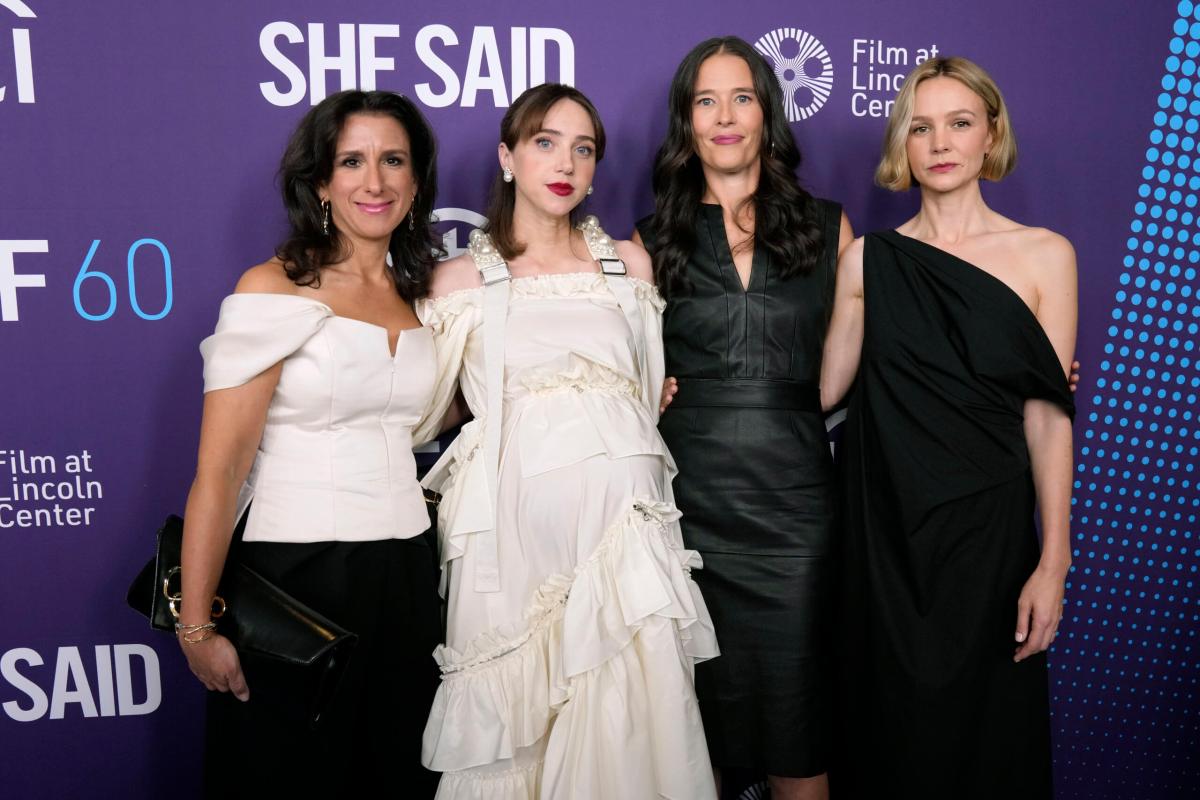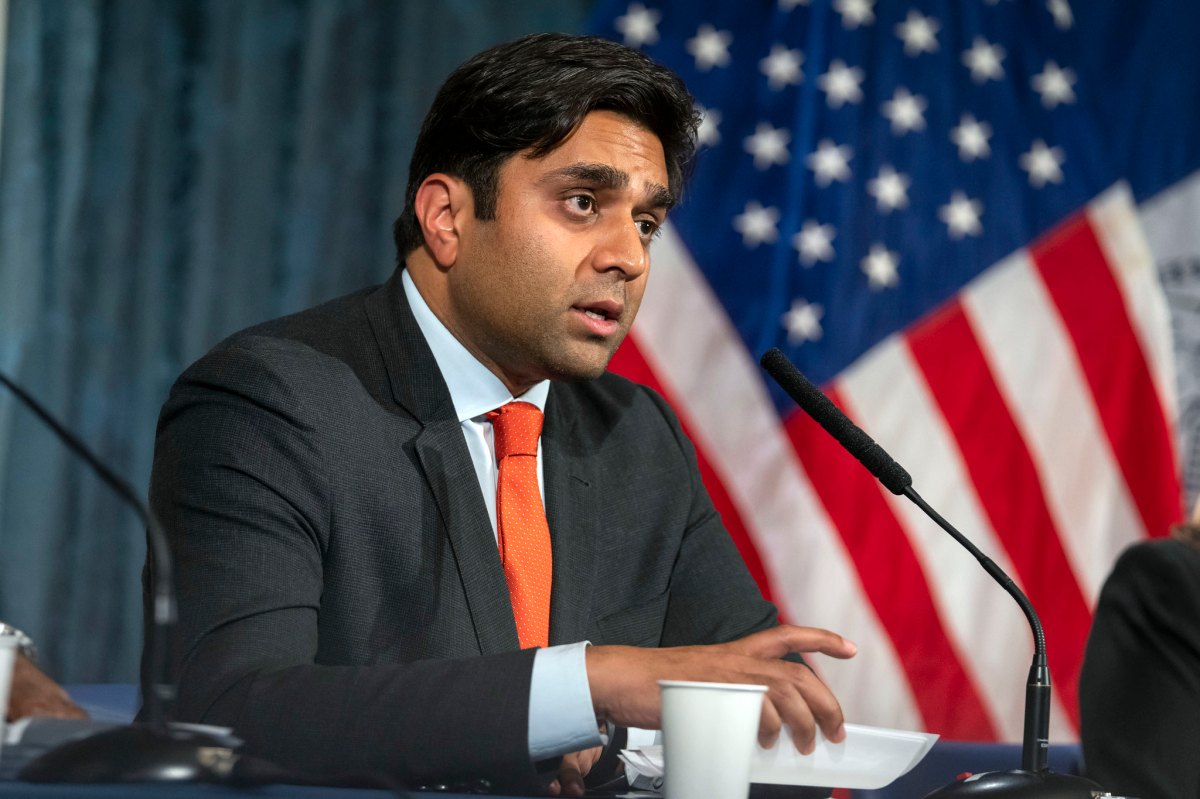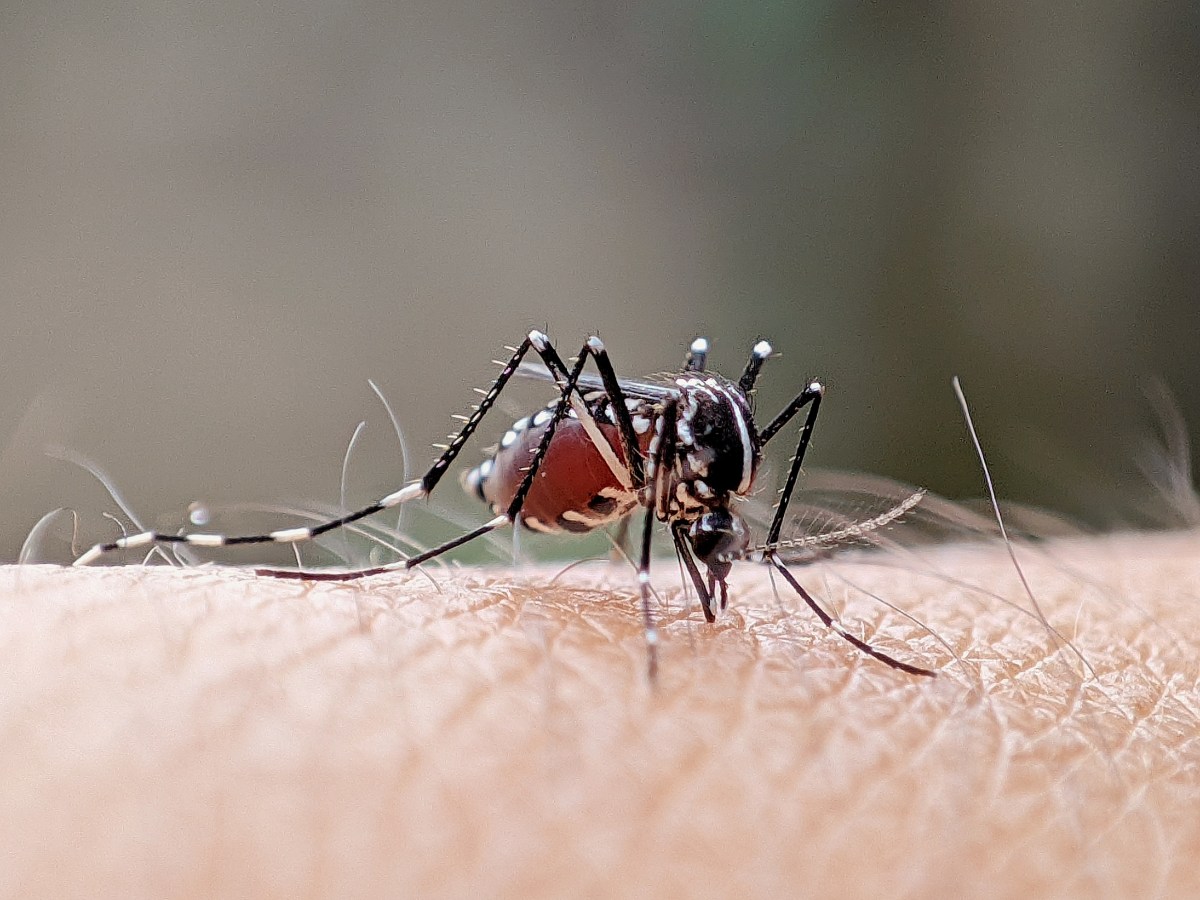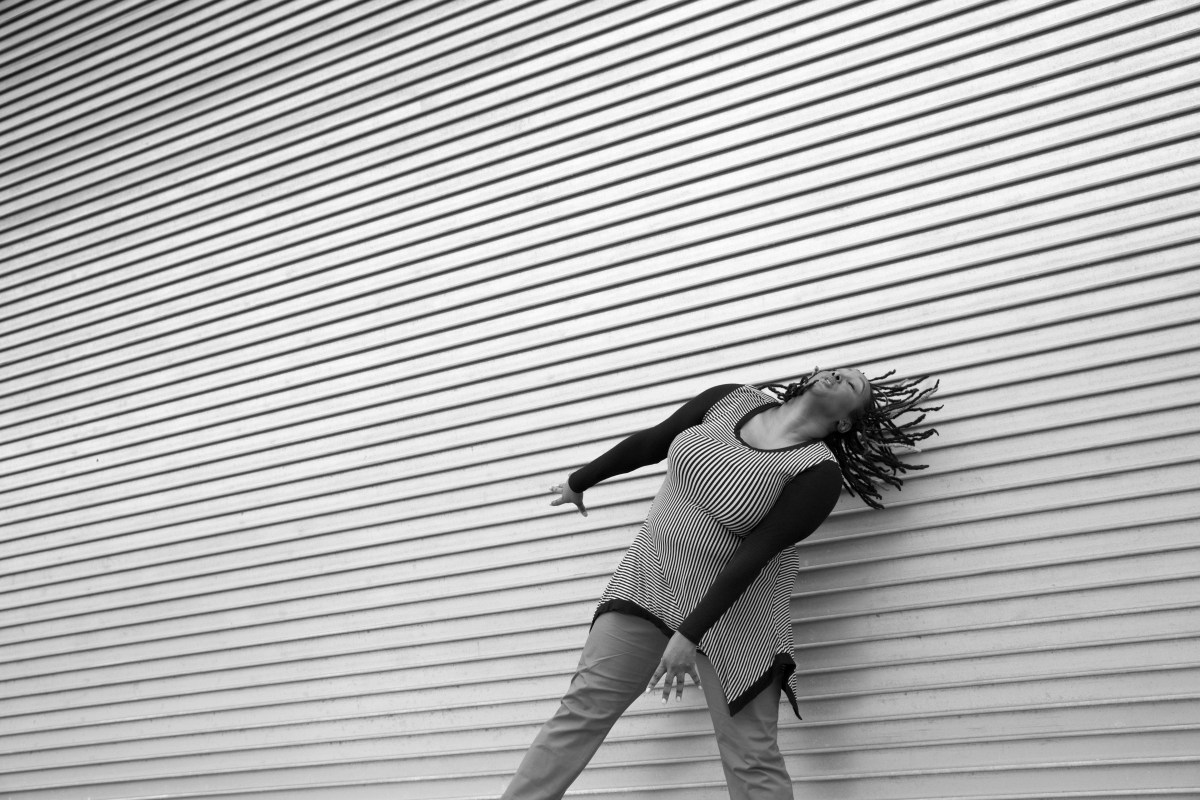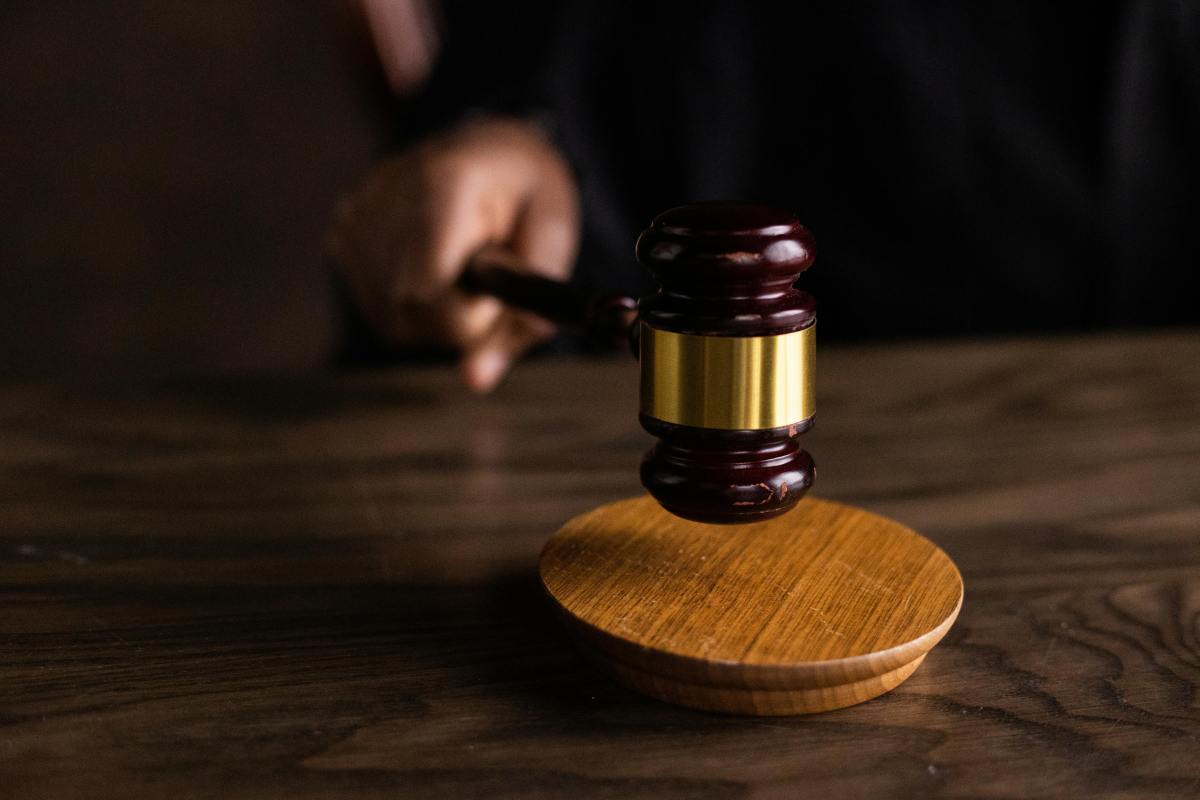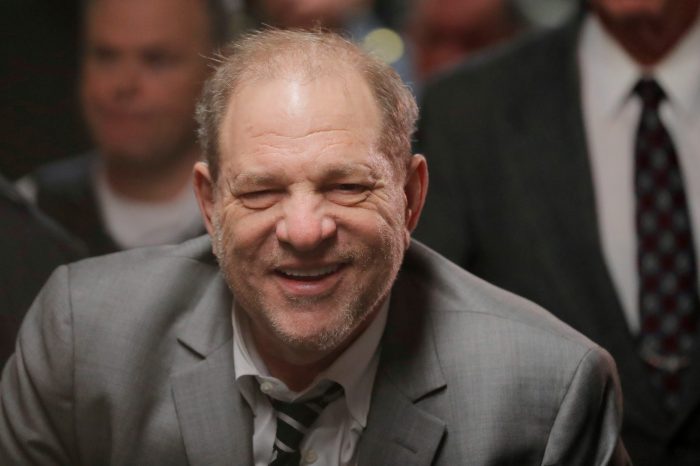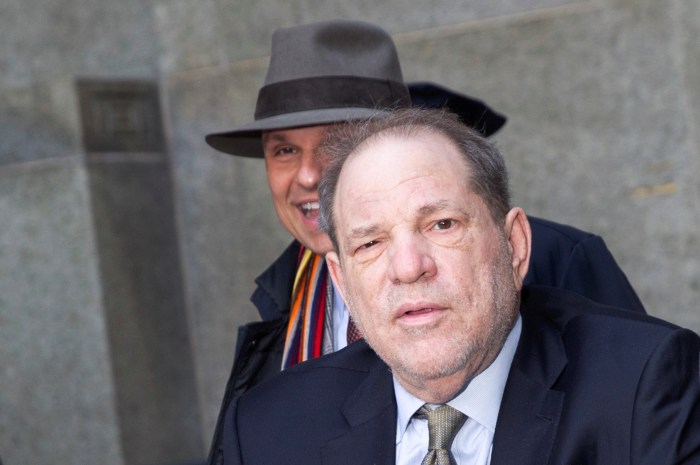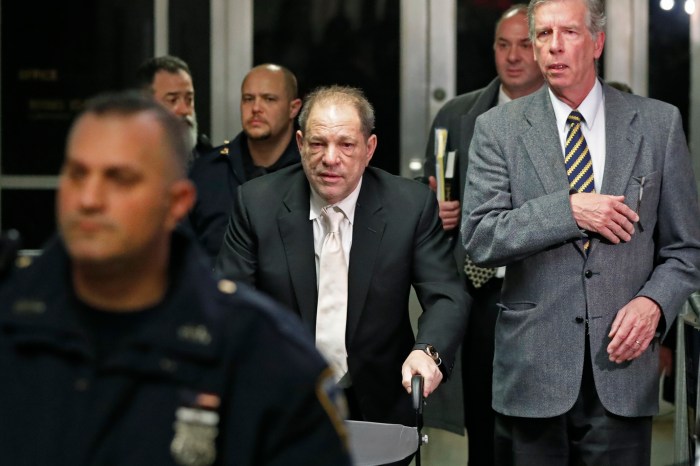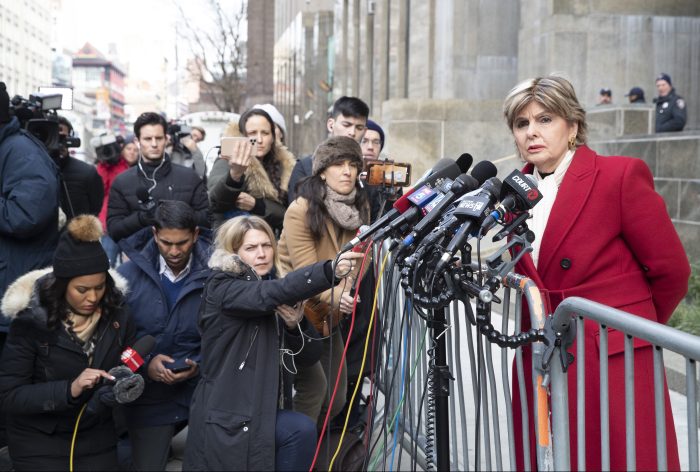Five years after a pair of exposés revealed Harvey Weinstein’s long trail of sexual abuse of women, “She Said,” a film that dramatizes the dogged fight to uncover years of allegations against the movie mogul, premiered Thursday at the New York Film Festival.
The film stars Carey Mulligan and Zoe Kazan as New York Times reporters Megan Twohey and Jodi Kantor, who helped uncover the many allegations against Weinstein. When news of their impending report was first leaked by Variety, Weinstein at the time commented: “The story sounds so good, I want to buy the movie rights.”
Instead, the movie that would become “She Said” was adapted from Twohey and Kantor’s 2019 book about the investigation. It unspooled Thursday at Lincoln Center’s Alice Tully Hall, with numerous women who came forward to tell their story in attendance, including Ashley Judd. Weinstein, meanwhile, is currently being tried in Los Angeles for 11 counts of rape and sexual assault. He has pled not guilty.
The 70-year-old Weinstein is currently serving a 23-year prison sentence after being convicted in 2020 for committing a criminal sexual act and third-degree rape.
One of the loudest of the film’s numerous standing ovations was for Judd, whose on-the-record account led The Times’ first report and whose bravery emboldened many others to speak out. Other women who came forward were also in the audience. Judd plays herself in the film.
“I just want to remember when I was speaking to my mother about all this, she said, ‘Oh, you go get ’em, honey,” Judd said in an on-stage conversation following the film, recalling that her father was with her after her 1996 meeting with Weinstein at the Peninsula Beverly Hills hotel. “When I came down from the hotel room, he knew something devastating had just happened to me by the look on my face.”
“It was very validating that someone finally wanted to listen and do something about it,” Judd added. “The film was the next step in that.”
That “She Said” was premiering in New York at a festival Weinstein once frequented made the evening particularly poignant. Eugene Hernandez, executive director of the festival, noted that “it’s a room Harvey Weinstein has been in.”
The movie, too, has been a subject in Weinstein’s current trial. During pre-trial hearings, Weinstein’s attorneys requested that the trial be delayed because of the release of “She Said,” arguing that it could influence jurors. Universal Pictures will open “She Said” in theaters Nov. 18. Los Angeles Superior Court Judge Lisa Lench rejected the motion.
But the array of women on stage — including the stars, the Times reporters, director Maria Schrader and screenwriter Rebecca Lenkiewicz — made a powerful statement. “She Said” follows the ups and downs of Kantor and Twohey’s persistent investigation, battling against a decades-old wall-of-silence, a litany of NDAs and Weinstein’s own belligerent responses.
“The number of people who shared information with us was relatively small, and yet their impact was so large,” Kantor. said “We hope this film helps people remember that these personal stories really can make an enormous difference.”
The Times’ reporting on Weinstein, along with that of The New Yorker, was the catalyst not just for Weinstein’s dramatic downfall but the rapid expansion of the #MeToo movement begun by activist Tarana Burke that would spread throughout Hollywood and many other industries.
“She Said” follows in the tradition of investigative journalism films like “All the President’s Men” and “Spotlight,” with the notable difference that its protagonists are women balancing their 24/7 work lives with their young families. The film takes care to show the reporters as hard-working professionals not so unlike the young, ambitious women Weinstein preyed on.
Kazan took a moment to reflect on what’s changed in Hollywood in the five years since. There are now intimacy coordinators on set for sex scenes and a more open conversation about gender imbalance. But, she said, “there’s so much change left to be effected.”
“Anybody reading the newspaper headlines since let’s just say the beginning of May would know that we’re still living in an oppressive patriarchy,” said Kazan. “That’s not special to our industry.”
Judd added that, thanks to SAG-Aftra agreements, auditions no longer happen in hotel rooms. But she also made the point that something deeper has changed within women.
“I have reframed the experiences that I have had to understand that they were, in fact, harassment and assault, when I had previously minimized them,” Judd said. “I think that the individual transformation a lot of us have had as a result of what Tarana started and as a result of this reporting, has allowed women’s consciousness to transform and to set boundaries and reclaim autonomy and say, ‘This is the up with which I will not put. This is the hill on which I’m willing to die.’ ”



